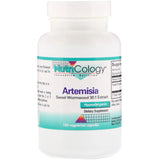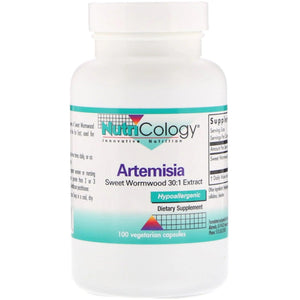Egg Allergy & Intolerance - Causes, Symptoms and Testing


Related products
Guide to Egg Allergy & Intolerances
Egg allergy refers to a hypersensitivity of the immune system to proteins found in eggs, which can lead to an adverse reaction when consumed. This type of allergy primarily affects children, but it can also persist into adulthood in some cases. Egg allergy is one of the most common food allergies in the United Kingdom, with an estimated prevalence of around 2% in young children. For more insights into identifying specific dietary triggers, individuals can explore a comprehensive Food Intolerance Test.
Prevalence and impact on the population
As one of the most widespread food allergies, egg allergy has a significant impact on the affected population. According to a study published in the British Journal of General Practice, egg allergies account for a substantial portion of food allergy-related hospitalisations and doctor visits. Furthermore, it poses challenges for individuals and their families in terms of dietary restrictions and potential reactions to egg-containing products.
Importance of awareness and understanding
Raising awareness about egg allergy and its potential consequences is essential for both healthcare providers and the general public. Increased understanding can help with early diagnosis, proper management, and avoidance of egg-containing products. Furthermore, it can help reduce the risk of severe allergic reactions and improve the quality of life for those affected.
Causes of Egg Allergy
Immune system response to egg proteins
An egg allergy is triggered when the immune system mistakenly identifies egg proteins as harmful substances. The primary egg proteins responsible for allergic reactions are: Ovalbumin: This is the most abundant protein in egg whites and is usually the main allergen in egg allergy cases. Ovomucoid: This protein is resistant to heat and digestion, which makes it a potent allergen even in cooked eggs. Ovotransferrin: Also known as conalbumin, this protein is found in smaller amounts in egg whites but can still provoke an allergic reaction. Lysozyme: This enzyme is present in both egg whites and yolks, and it can contribute to allergic reactions in some individuals.
Genetic predisposition and risk factors
Genetic factors play a role in the development of egg allergy. A family history of allergies, including asthma, eczema, and hay fever, increases the risk of developing an egg allergy. Additionally, a study published in the Journal of Allergy and Clinical Immunology suggests that specific genetic variations are associated with an increased likelihood of egg allergy.
Environmental factors
Environmental allergens like pollen, dust mites, and pet dander can increase the risk of developing egg allergies. Individuals suspecting environmental factors as triggers may benefit from an Environmental Intolerance Test to identify potential allergenic sources.
Symptoms of Egg Allergy
Mild symptoms
Mild symptoms of egg allergy can vary from person to person, but they typically manifest within a few minutes to a few hours after consuming eggs or egg-containing products. Some common mild symptoms include: Hives or rash: Raised, red, itchy welts on the skin are a common sign of an allergic reaction to eggs. Itchy or watery eyes: This symptom occurs when the body releases histamine in response to the allergen , leading to inflammation and irritation in the eyes. 3. Sneezing or runny nose: The release of histamine can also cause nasal congestion and sneezing, as the body attempts to expel the allergen. Stomach pain or nausea: Digestive symptoms such as stomach cramps, vomiting, and diarrhoea may occur in response to egg ingestion in allergic individuals.
Severe symptoms
In some cases, egg allergy can lead to severe, life-threatening reactions known as anaphylaxis. Anaphylaxis is a medical emergency that requires immediate treatment with epinephrine (adrenaline). Symptoms of anaphylaxis can include: Difficulty breathing: Swelling in the throat, wheezing, and shortness of breath can indicate a severe allergic reaction. Rapid or weak pulse: Anaphylaxis can cause a sudden drop in blood pressure, leading to a rapid, weak, or irregular heartbeat. Feeling lightheaded or faint: The drop in blood pressure may also cause dizziness or fainting. Swelling of the face, lips, or tongue: This symptom can be a sign of a severe allergic reaction and can potentially obstruct the airway, leading to difficulty breathing.
Moderate symptoms
Some individuals with egg allergy may experience moderate symptoms, which can cause discomfort but are not immediately life-threatening. These symptoms can include: Swelling of the lips, face, or tongue: Localised swelling, also known as angioedema, can occur in response to the allergen, causing discomfort and difficulty swallowing. Vomiting or diarrhoea: Ingestion of eggs can lead to gastrointestinal symptoms, such as vomiting or diarrhoea, which can result in dehydration if not managed properly. Wheezing or difficulty breathing: Moderate allergic reactions may cause breathing difficulties due to inflammation and constriction of the airways.
Severe symptoms
Anaphylaxis
Anaphylaxis is the most severe form of an allergic reaction and can be life-threatening if not treated promptly. The symptoms of anaphylaxis can include: a. Rapid onset: Anaphylaxis can occur within minutes of exposure to the allergen, making it crucial to recognise and address the symptoms quickly. b. Life-threatening: Severe anaphylaxis can lead to circulatory collapse, respiratory failure, and even death if not treated immediately. c. Emergency treatment: Anaphylaxis requires urgent administration of epinephrine (adrenaline) and immediate medical attention to prevent potentially fatal complications. Individuals who suspect they may have severe food sensitivities or allergies could consider a Combined Allergy and Intolerance Blood Test to precisely identify allergens.
Diagnosis of Egg Allergy
Medical history and symptom assessment
The diagnostic process for egg allergy begins with a thorough review of the patient's medical history and a detailed assessment of their symptoms. This information can help the healthcare provider determine whether an egg allergy is likely and identify any potential triggers.
Skin prick test
A skin prick test is a common method used to diagnose egg allergy. During the test, a small amount of the egg allergen is applied to the skin, which is then pricked with a needle to introduce the allergen beneath the skin's surface. If a raised, red, itchy bump (a wheal) develops at the allergen test site, this indicates a positive reaction to the allergen.
Blood test
A blood test can also be used to diagnose an egg allergy by measuring the levels of egg-specific immunoglobulin E (IgE) antibodies in the blood. Elevated levels of these antibodies suggest an allergic reaction to eggs. Individuals seeking precise evaluation of their immune response may benefit from the IgE Immunoglobulin Blood Test.
Oral food challenge
In some cases, an oral food challenge may be necessary to confirm an egg allergy diagnosis. This involves the supervised ingestion of small, gradually increasing amounts of egg under the guidance of an allergist. If an allergic reaction occurs, the challenge is stopped, and the diagnosis is confirmed.
Elimination diet and reintroduction
An elimination diet involves removing eggs and egg-containing products from the individual's diet for a period of time, typically two to four weeks. If symptoms improve during this period, eggs are then gradually reintroduced under the supervision of a healthcare professional. If symptoms return upon reintroduction, this supports the diagnosis of an egg allergy. ndividuals seeking a comprehensive intolerance assessment might find the Premium Intolerance Test helpful for identifying a broader range of dietary sensitivities.
Management and Treatment Strategies
Avoidance of egg-containing products
Managing egg allergy primarily involves strict avoidance of eggs and egg-containing products. This includes: Reading food labels: Individuals with an egg allergy should familiarise themselves with ingredient lists and look for potential egg-derived ingredients, such as albumin, lysozyme, and lecithin. Identifying hidden sources of egg: Eggs can be found in unexpected products, such as sauces, dressings, and processed meats. It's essential to be vigilant in identifying these hidden sources. Dining out and cross-contamination: When eating at restaurants, it is crucial to communicate the allergy to the staff and inquire about potential cross-contamination risks during food preparation.
Egg substitutes in cooking and baking
Several egg alternatives can be used in cooking and baking to accommodate an egg-free diet. Common substitutes include applesauce, mashed bananas, vinegar and baking soda, and commercially available egg replacement products.
Medications for symptom relief
While avoidance is the primary strategy, medications can help manage symptoms if accidental exposure occurs. These medications include: Antihistamines: Over-the-counter antihistamines can help relieve mild to moderate symptoms such as itching, hives, and nasal congestion. Corticosteroids: In some cases, prescription corticosteroids may be used to reduce inflammation and alleviate symptoms. Epinephrine auto-injector (EpiPen): Individuals with a history of severe allergic reactions should carry an epinephrine auto-injector at all times for emergency treatment of anaphylaxis.
Allergen immunotherapy
Allergen immunotherapy, also known as desensitisation therapy, can help increase tolerance to the allergen and reduce symptoms. Two main types of immunotherapy used for food allergies include: Oral immunotherapy (OIT): This approach involves the gradual consumption of small, increasing amounts of the allergen under medical supervision, with the aim of building up tolerance to the allergen over time. Sublingual immunotherapy (SLIT): Similar to OIT, SLIT involves placing a small amount of the allergen under the tongue for a specific period, allowing it to be absorbed into the bloodstream. This method is less commonly used for food allergies but is being researched as a potential treatment option.
Building a support network
Living with an egg allergy can be challenging, and building a support network can help affected individuals and their families navigate these challenges. Connecting with others who have similar experiences, either in-person or through online support groups, can provide valuable resources, advice, and emotional support. Additionally, working closely with healthcare providers and registered dieticians can help ensure that an egg-free diet is nutritionally balanced and sustainable.
Living with Egg Allergy
Tips for managing daily life
Adapting to an egg-free lifestyle requires diligence and organisation. Some practical tips for managing daily life with an egg allergy include planning meals in advance, preparing safe snacks for on-the-go, and learning to cook and bake with egg substitutes.
Navigating social situations
Social gatherings can pose challenges for individuals with egg allergies. To navigate these situations, consider informing hosts of the allergy in advance, offering to bring a safe dish to share, or eating a meal beforehand to avoid feeling hungry or excluded during the event.
Travel considerations
Travelling with an egg allergy requires extra planning to ensure a safe and enjoyable trip. Research restaurants and accommodations in advance, pack safe snacks and medications, and carry a translated allergy card if travelling to non-English-speaking countries.
Raising egg-allergic children
Parents of children with egg allergies should educate their children about their allergy, teach them to recognise and avoid unsafe foods, and ensure that they understand the importance of carrying emergency medications. Additionally, communicating with teachers, caregivers, and other parents can help create a safe environment for the child.
Coping with anxiety and fear
Living with an egg allergy can cause anxiety and fear, particularly in relation to the risk of anaphylaxis. Seeking support from mental health professionals, support groups, or family and friends can help individuals develop coping strategies and manage these emotions.
Conclusion
Importance of continued research
Continued research into the causes, diagnosis, and treatment of egg allergies is essential for improving the lives of affected individuals. Advances in allergen immunotherapy and other emerging treatments offer hope for a future with more effective management strategies. Additional resources and allergy-specific tests are available through Welzo's dedicated Intolerance Tests Collection, supporting those navigating allergies and intolerances comprehensively.
Hope for improved treatments and potential cures
As research progresses, the potential for improved treatments and even cures for egg allergy becomes more likely. While no definitive cure exists yet, the ongoing development of immunotherapies and other treatments offers hope for a brighter future for those living with egg allergies.
Role of public awareness and education
Increasing public awareness and education about egg allergies is crucial for ensuring that affected individuals can live safely and comfortably in society. By promoting understanding and empathy, the public can play a significant role in supporting those with egg allergies and contributing to a more inclusive environment for all.
To learn more about Allergies, read our comprehensive guide that covers: Allergies:, Types, Causes, Symptoms, Diagnosis, and Treatment options. If you are looking for treatments for hay fever or general allergens, then visit our extensive page with allergy and hayfever medication and tablets.

































 Rated Excellent by 26,523+ Reviews
Rated Excellent by 26,523+ Reviews